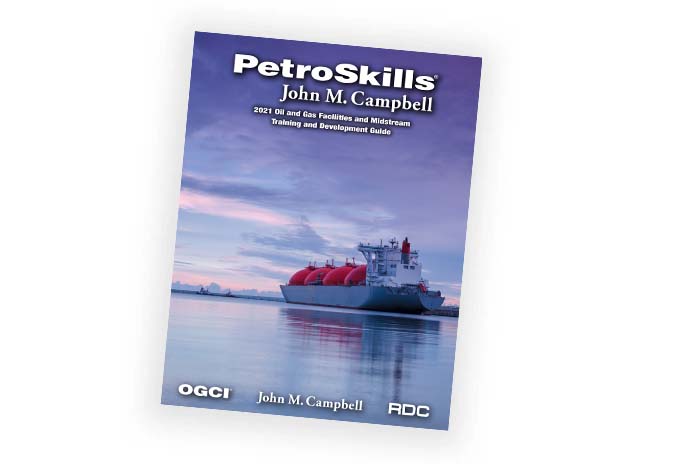Economic Evaluation of Prospects and Producing Properties - EPP
Course
About the Course
Property sales and acquisitions, lending, and investment joint ventures abound in the petroleum industry. What is most important for decision-making is to know the value of the subject asset. The evaluation model is central to understanding a project and valuing each party's interest. The model is the basis for communicating among project team members, managers, and partners. In this course participants learn good evaluation modeling practice and the decision analysis process. Appraisal modeling methods for upstream investments and operating decisions are discussed and experienced in this hands-on workshop. The learning objective is a process for delivering a credible and well-documented evaluation of reserves (or resource) and economic worth. Risk and decision analysis techniques are integral. Personal computer spreadsheets and other software are discussed. Optionally, computers with spreadsheet software may be used in this class. Model inputs include assessments about geologic, engineering and economics. Example calculations show typical engineering formulas employed in property evaluation. Drilling schedule, initial production rate and decline, product price and cost escalations, fixed and variable operating costs, simple taxes, and deal structure are added. The forecasting model translates the physical and economic project/asset description into resource/reserves, production and cash flow forecasts, and several decision criteria. Participants are encouraged to bring examples from their work for discussion. Please contact us if you wish to submit a problem in advance for possible use as a class exercise. Management buy-in and participation are essential to the success of decision analysis in an organization. The course instructor will be pleased to present a short executive briefing to managers and executives not attending the course. Please contact us if you would like to arrange a briefing session at some point during the training week.
Target Audience
Engineers, geologists, geophysicists, managers, planners, and persons new to analysis and evaluation responsibilitiesYou Will Learn
Participants will learn how to:
- Describe the elements of the decision analysis process and the respective roles of management and the analysis team. Describe the decision framing phase and influence diagramming.
- Express and interpret judgments about risks and uncertainties as probability distributions. Explain common biases and techniques to reduce. Discuss popular statistics and common mistakes.
- Represent discrete risk events in Venn diagrams, probability trees, and joint probability tables. Extract or calculate joint and marginal probabilities.
- Explain expected value and its central role in a logical, consistent decision policy. Explain how decision trees, payoff tables, and Monte Carlo simulation work as calculation alternatives.
- Craft and solve decision models as the basis for evaluating alternatives. Evaluate investment and design alternatives with decision tree analysis.
- Understand and demonstrate good cashflow modeling practice. Aware of accounting and finance fundamentals useful in cashflow modeling. Correctly calculate escalated cashflow projections and present value.
Course Content
- Decision Tree Analysis: decision models, project threats and opportunities; value of information overview; advantages and limitations
- Monte Carlo Simulation: conventional and Latin hypercube sampling, portfolio problems, optimization overview, advantages and limitations
- Decision Criteria and Policy: value measures, multiple objective decisions, HSE considerations, capital constraint, risk aversion; credible analyses
- Modeling the Decision: decision analysis process; problem framing; influence diagrams, common petroleum risks; sensitivity analysis, modeling correlations, elements of good evaluation practice; accounting concepts useful in modeling; avoiding common mistakes in modeling cost and price escalations and in calculating present value; simple portfolio models
- Basic Probability and Statistics: three fundamental probability rules; Venn diagrams; calibration and eliciting judgments; choosing distribution types; common misconceptions about probability; judgments; avoiding biases in estimation; stochastic variance
- Expected Value Concept: foundation for decision policy, features and pitfalls to avoid
- Team Exercise: Evaluating an extension well location with probabilistic reserves concepts
- Implementing Decision Analysis: problem framing, guidelines for good analysis, team analyses, computer tools (discussion and demonstrations), mitigating risks
Product Details
Categories:
Upstream, Midstream, Business & ManagementDisciplines:
Petroleum BusinessLevels:
FoundationProduct Type:
CourseFormats Available:
In-ClassroomAdditional
Request a Public Session
If you are interested in a public session of this course, please click the button below to request it.
Request Public SessionIn-House Training
This course is also available upon request as a private, on-site seminar. Contact us for details and pricing.
Request In-House TrainingNeed Help
Contact us if you have additional questions about how to register for or attend this course.
Contact Us



